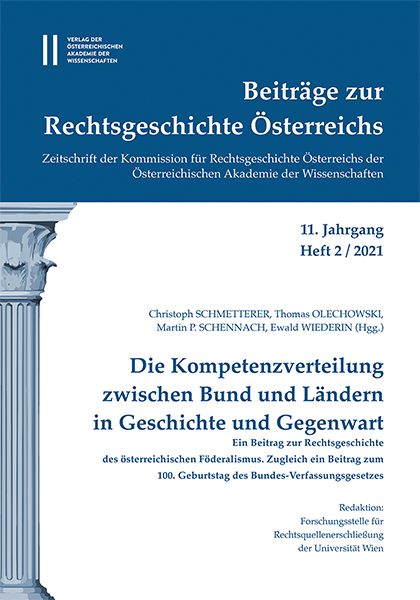
Beiträge zur Rechtsgeschichte Österreichs 11. Jahrgang Heft 2/2021, pp. 163-181, 2021/12/16
Die Kompetenzverteilung zwischen Bund und Ländern in Geschichte und Gegenwart
Ein Beitrag zur Rechtsgeschichte des österreichischen Föderalismus. Zugleich ein Beitrag zum 100. Geburtstag
des Bundes‐Verfassungsgesetzes
The dogmatics of the distribution of competences benefits from a theory of the distribution of competences, because the latter reminds the former of the complexity and plurality as well as of the relativity and contingency of competence relations. In this way, the theory encourages dogmatics to develop concepts and arguments that are more viable and suitable, but less systematic‐smooth and less universal. In particular, a critical theory of the distribution of competences sustainably shakes the self‐evidence with which the essence of competence or the nature of the federal state is invoked to solve concrete problems – and thereby directs the view to positive law in its contingency.
Keywords: competency allocation – competence distribution techniques – distribution of competence and exercise of competence – relationality